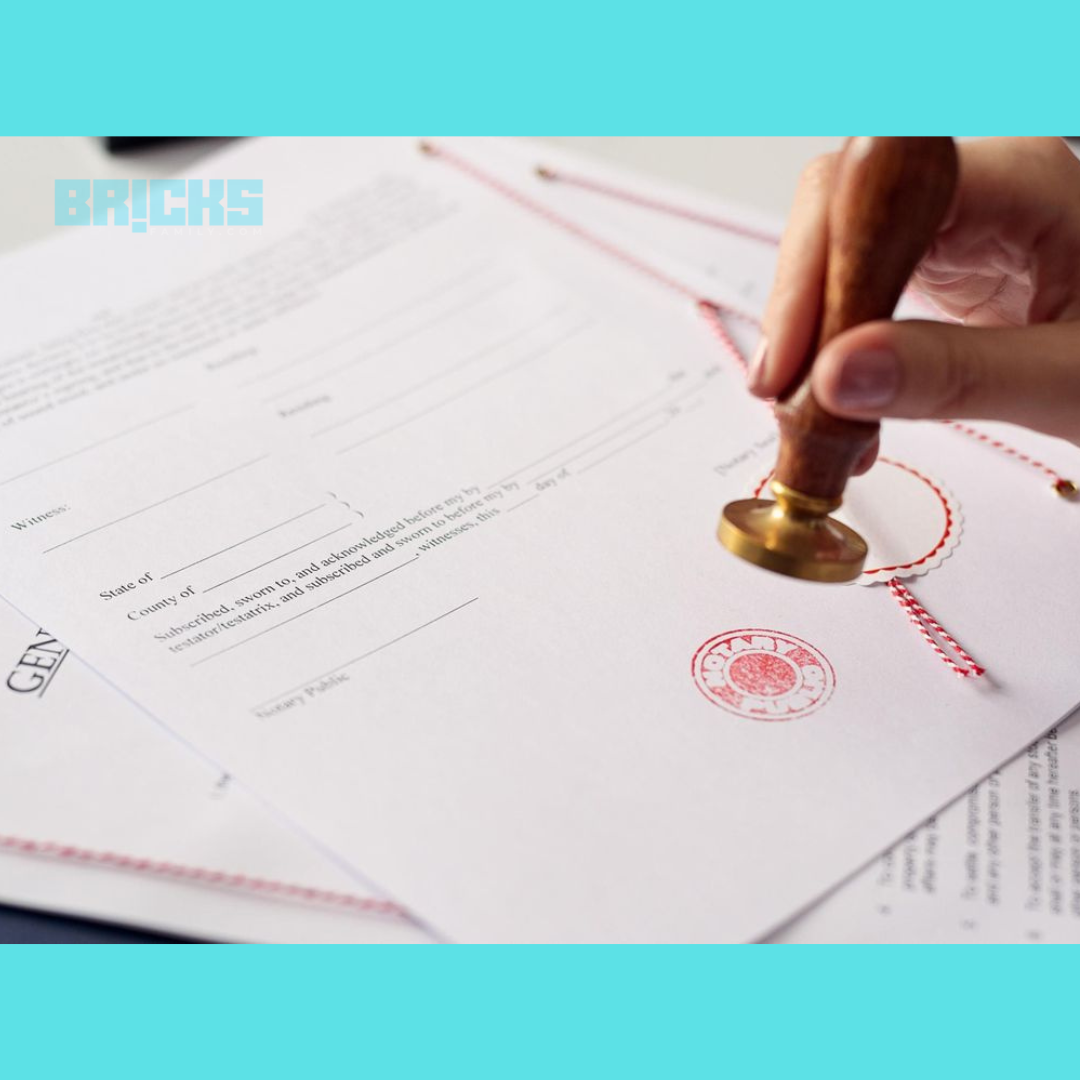A power of attorney (PoA) is a legal arrangement that allows one person to act on another’s behalf. The Powers of Attorney Act 1888 governs powers of attorney (PoA). In most cases, registering a Power of Attorney is not required. However, if the PoA creates an interest in the subject property, registration is required.
The power of attorney definition can be difficult to grasp for the uninitiated. In layman’s terms, power of attorney means giving or delegating authority to someone to perform a specific task, such as selling a property, representing you in court, negotiating with potential buyers, and so on.
What is a Power of Attorney?
A power of attorney (POA) is a legal document that allows a person to appoint another person or organization to manage his or her property, medical affairs, and finances on his or her behalf while he is not present. The person who authorizes the other person to act on her behalf is referred to as the principal, donor, or grantor in this arrangement. The authorized person is known as the agent or power of attorney agent.
Depending on the terms and conditions, the authorized agent may have broad or limited authority to make legal decisions involving property (Power of attorney for the property), medical affairs, and finances.
Types of Power of Attorney (POA)
There are four types of POAs based on the degree of responsibility delegated.
Conventional Power of Attorney
This instrument is also known as the General Power of Attorney (GPA) or limited power of attorney, depending on the degree of responsibilities granted. This is limited to a single responsibility and is only valid for a limited time. This facility allows the PoA agent to make personal and business decisions.
For example, the grantor may delegate authority to a PoA agent to sign a sale deed while the grantor is out of town or country.
Durable Power of Attorney
POA is built to last a lifetime. The PoA agent has the authority to make decisions even if the grantor becomes incapacitated or unfit to make decisions. A durable POA generally lasts until the grantor’s death or until the grantor cancels the POA.
For example, the grantor can appoint someone to manage his investment portfolio.
Springing Power of Attorney
The springing POA is used for a specific event, date, or condition, as well as when the grantor becomes incapacitated.
For example, if a military member becomes disabled or is deployed abroad, he can appoint a PoA agent to handle his financial affairs.
Medical Power of Attorney
Medical POA is classified as both springing POA and durable POA. This instrument is typically used to make healthcare decisions. It should be noted that the grantor’s medical POA will not be activated until he or she is conscious and in good health.
E.g., The grantor’s medical bill can be paid by the PoA agent. However, he is not authorized to make the decision to turn off the life support system if necessary.
Who can be chosen as the Power of Attorney (PoA)?
The decision of who to appoint as a power of attorney (PoA) can be difficult. In terms of eligibility, a POA can be anyone who is trustworthy, over the age of 18, and of sound mind.
Before appointing someone as a POA, it is critical to consider the person’s value system and character. The person chosen as POA should be able to make firm and clear decisions.
Is it possible to appoint multiple Power of Attorneys?
Can a person appoint multiple POAs? This is a frequently asked question. Yes, a person can hire multiple attorneys and choose whether they must act separately or jointly when making a decision.
Multiple attorneys can actually assist in making a sound decision by discussing all of the benefits and drawbacks. However, in some cases, multiple attorneys may disagree on a matter, causing an important decision to be delayed.
Rather than relying on a single PoA agent, it is prudent to have a backup. If the agent becomes ill or injured, the backup person can take over.
How to revoke a Power of Attorney?
A Power of Attorney (PoA) can be revoked or cancelled at any time if the grantor is mentally fit and competent. If the grantor wishes to revoke a Power of Attorney, he or she must notify the agent in writing, sign the revocation letter in the presence of a notary public, and deliver it to the attorney-in-fact. The letter must be sent to all third parties with whom the agent has contacted. If a power of attorney was signed in the recorder’s office, the revocation letter should be signed there as well.
How to become a Power of Attorney (PoA) Agent?
A person must be of sound mind and at least eighteen years old to work as a power of attorney agent. The agent is responsible for keeping track of all financial transactions, not combining his personal property or bank account with the grantor’s, and not engaging in a conflict of interest.
How to select a Power of Attorney (POA)?
The authorized PoA agent may have limited or extensive authority to make legal/other decisions about the property and/or medical affairs and finances, depending on the terms of the POA document. A PoA agent must also be of sound mind and be at least eighteen years old.
The following pointers may be useful in selecting a PoA.
Choose a trustworthy person to handle your financial and property affairs while you are away. You can also choose an agent based on the duties. You can also choose the type of POA based on the functions to be performed.
Anyone can decide who has power of attorney and when the authority begins and ends.
There are numerous POA templates available online. Follow the rules and procedures established by your state government.
The POA can be created with the help of a property or general lawyer.
Fill out all of the required applications and sign all property-related documents.
Check the signed forms with a lawyer (property lawyer in the case of real estate) and have the documents notarized (Power of attorney for the property).
Power of Attorney Format
A power of attorney (POA) document is a legal document that delegates authority to another person to act on your behalf in financial and legal matters. The following information is typical of a power of attorney format.
Identification of the grantor: The grantor, also known as the “principal,” is identified in this section.
Identification of the agent: This section identifies the person to whom a power of attorney is being granted, also known as the “attorney-in-fact” or “agent.”
Scope of authority: This section specifies the powers granted to the agent, such as signing legal documents, managing bank accounts, selling property, and so on.
Duration: This section specifies how long a power of attorney will be valid. Some POA documents are written to be “durable,” which means they will continue to be effective even if the principal becomes incapacitated.
Signature requirements: The signature requirements for the principal and witnesses are specified in this section.
Revocation: This section describes how to revoke a power of attorney, which is typically accomplished by signing a revocation document and providing copies to all relevant parties.
Notarization: The requirements for notarizing the POA document, which may be required in some states, are outlined in this section.

It is important to note that the Power of attorney format and laws vary by state, as do the specific details included in a power of attorney format. It is strongly advised that you consult with an attorney to ensure that your Power of Attorney document satisfies the legal requirements in your jurisdiction.
Stamp Duty for Power of Attorney
If a General Power of attorney (GPA) is executed without consideration in the name of the father, mother, brother, daughter, grandson, sister, wife, husband, son, granddaughter, or any close relative, then stamp duty of Rs. 500/- is only applicable for registration.
If the General Power of Attorney (GPA) is granted to someone other than a close relative for consideration, stamp duty is levied based on the market value of the property or the consideration value, whichever is greater.
A registration fee of Rs 100 is levied in addition to the stamp charges if the Power of Attorney (PoA) is granted without consideration in the name of the father, son, daughter, mother, brother, grandson, sister, wife, husband, or granddaughter or a near relative.
In all other cases, registration fees are levied at a rate of Rs 10 per Rs 1000, with a minimum of Rs 100 and a maximum levy of Rs 30,000 based on the property’s market value or consideration value, whichever is greater.
How can an NRI execute a Power of Attorney (PoA)?
Non-Resident Indians (NRIs) who want to buy/sell a property in India can do so by executing a power of attorney (PoA) to a person who can complete the transaction on his/her behalf.
How do you get a Power of Attorney done?
The POA must be signed at the office of the sub-registrar in the jurisdiction of the person granting the power. If the grantor resides outside of India, the POA must be attested by the Indian consulate in that country and used within three months of execution.
A person who is residing outside of India (NRI) and wishes to purchase a property (Power of attorney for the property) in India can do so using the following methods:
Legalization: The accredited representative of the Indian Embassy/Consulate must authenticate the signature of the judge/notary in front of whom the POA is signed/executed. Furthermore, this POA must be stamped in India within three months of receipt. When the document is represented in India for registration, the stamp duty is paid. The stamp duty on PoA is paid in accordance with Section 2(17) of the Indian Stamp Act, 1899, as read with Schedule-I.
Apostille: An apostille is a certificate that confirms and verifies the signature/seal of the person who authenticated the document (in this case, the Power of Attorney (PoA) Act, and it must be in accordance with Indian laws such as the Indian Registration Act, 1908, and the Power of Attorney (PoA) Act, 1882. The POA executed outside of India is validated through an apostillisation procedure governed by the 1961 Hague Convention.
Power of Attorney – Dos and Don’ts as an Attorney
A power of attorney (POA) is a legal document that allows you to appoint someone to manage your property, legal affairs, medical affairs, and/or finances in your absence.
The authorized agent may have limited or extensive responsibilities to make legal/other decisions about the property (Power of attorney for the property), medical affairs, and finances, depending on the terms of the POA.
The following things or acts are permitted and prohibited as a PoA.
Financial and property affairs:
The PoA can-
- Buy, sell and rent a property
- Repair and maintain grantor’s house
- Supervise and manage the bank accounts
- Payment of Bill
- Investments management
- Gift purchase (under defined rules)
The PoA can’t-
- Give big financial gifts
- Take their own decisions related to discretionary funds
- Grantor’s bank account cannot be mixed with the agent’s account
- Misuse of position for personal interests
- Tax planning without proper supervision
Health and welfare:
An agent can-
- Plan the daily routine of the grantor
- Take decisions about personal care and medical treatments
- Take decisions that benefit and profit the grantor
- Consider what the grantor instructs
Things an agent can’t do-
- He cannot restrict the grantor’s freedom
- If the grantor is mentally stable, the agent cannot make any decisions
Is it advisable to buy a property through GPA? (Supreme Court Opinion)
As a result, the GPA is not a viable method of selling a property. The transactions and formalities associated with the sale of a property can only be carried out in accordance with the formalities and procedures established by the respective state government. The court also ordered the municipal authorities not to register a property sold or purchased through the GPA route. According to SC, the GPA route leads to tax evasion, the creation of black money, and illegal profiteering.
To summarise, a Power of Attorney is a useful legal instrument that allows a person to carry out important decisions while they are away.
Also Read: Land Measurement Units in India: Standard Measurement Units, Land Conversion Table
Similar Topics: How to Change Name in Land Registry or Property Documents?












